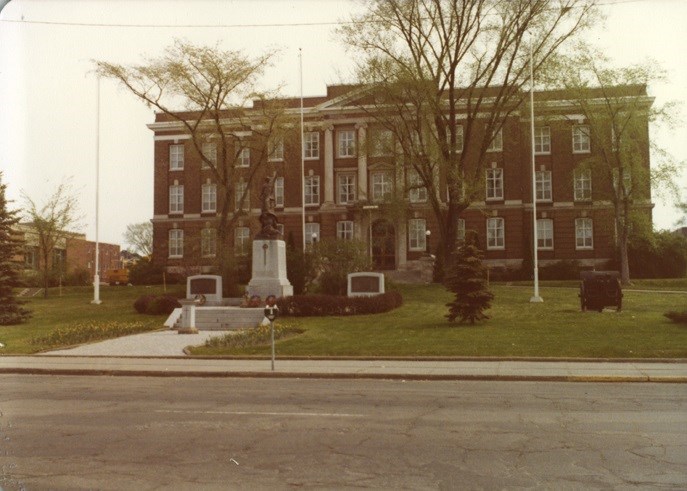From the archives of the Sault Ste. Marie Public Library:
In September of 1948, the trial of Richard Rivers, accused of killing his sister-in-law May Rivers, continued.
The defense did what it could to throw water on the prosecution’s version of events. They pointed out that the hotel doors were left unlocked – meaning that anyone could have gone up to the room and murdered May without the knowledge of the owner. While the prosecution viewed Richard fleeing into the woods as an indicator of guilt, the defense said it was “a natural reaction of his race to go to the forests where [he] can think things out.”
Moreover, the defense argued, if he was actually guilty, “he would have gone so far in the bush they probably would never have found him.”
However, Richard himself did not have much of an alibi. During the trial, a statement that he made to police came to light, in which he said, “Maybe I done it and maybe I didn’t. It was all a blank to me.”
He said he had passed out, intoxicated, and didn’t remember anything – at least, until he found himself walking on the main street in Blind River, returned to the hotel, and found his sister-in-law dead and severely battered.
Moreover, he had blood on his clothing, albeit not enough to determine if the blood type matched May’s. It was Richard’s belt that was around May’s neck, although he claimed he didn’t know he had it with him. Richard himself admitted that he did not call the police when he found May’s body “because [he] didn’t know what [he] had done that night.”
And the Crown attorney also noted that in his mind, the strewn, ripped clothing in the hotel room and the way the victim was positioned on the bed indicated rape or sexual assault.
The trial was disturbing enough that Justice Gale excluded minors from the proceedings. He ordered out two 16-year-olds, saying, “Youth can see enough sordidness without seeking it out.”
At nine days, the trial was one of the lengthiest seen in the city to that point. Ultimately, on Sept. 30, the case went to the jury, who were given the options of finding him not guilty, guilty of manslaughter, or guilty of murder. The judge instructed the jury to be impartial in their ruling: to not be prejudiced by the accused’s race, and to not be swayed by the brutality of the crime.
After nine and a half hours of deliberation on the part of the jury, Richard Rivers was found guilty of the murder of his sister-in-law. He was sentenced to hang.
An attempt to repeal the conviction through the Ontario Court of Appeals on the grounds of a mistrial was unsuccessful. An attempt to appeal the conviction through the Supreme Court was also denied. During his final hours, he visited with his mother and gave her his rosary. And in the early morning hours of Dec. 16, 1948, Richard Rivers went to the gallows. As the Sault Star reported, just after midnight he “went to his death quietly, with complete composure.”
Each week, the Sault Ste. Marie Public Library and its Archives provides SooToday readers with a glimpse of the city’s past.
Find out more of what the Public Library has to offer at www.ssmpl.ca and look for more Remember This? columns here
